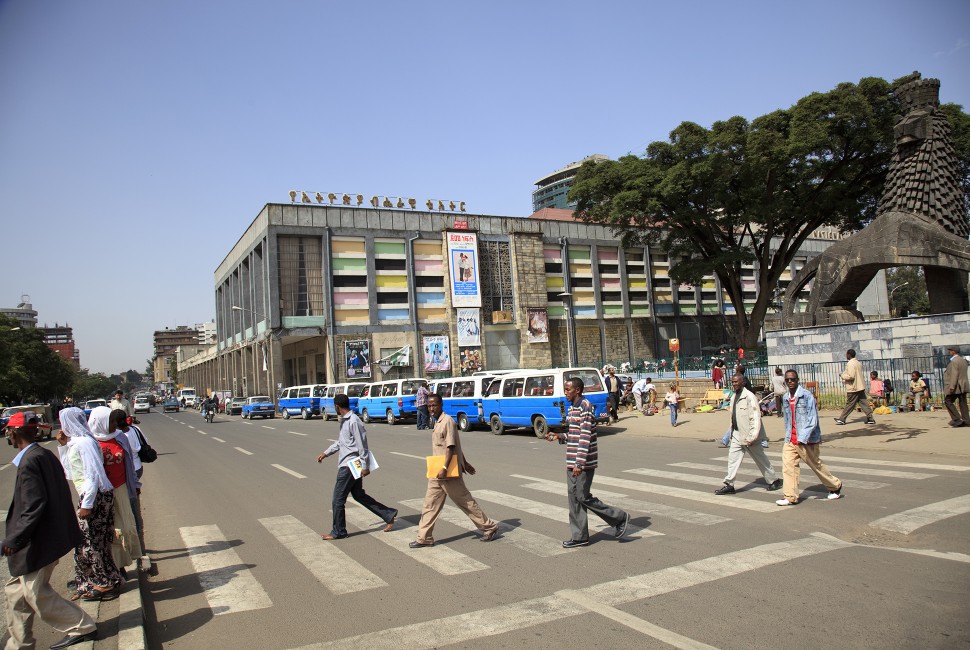The contemporary Ethiopian state is facing enormous challenges, including the militarization of state and non-state actors, high-population density accompanied by youth unemployment, food insecurity, real and perceived inequality and discrimination among ethnic groups, ethnic and political polarization and widespread human rights abuses. Ethiopians remain divided in their views about what kind of constitutional structure has the greatest potential to address these challenges and unify the country without compromising its diversity.
Within this context, last May Northwestern University’s Pritzker School of Law and Roberta Buffett Institute for Global Affairs, in collaboration with the Addis Ababa University College of Law and Governance Studies and the Harvard Law School’s Human Rights Program, convened Ethiopian scholars in Addis Ababa from a wide variety of fields including constitutional law, federalism, history and political science to present papers, essays and lectures on the future of the Ethiopian social contract.
Broad look at social and political challenges
The ensuing publication, “Between Failure and Redemption: The Future of the Ethiopian Social Contract,” encompasses a collection of papers and proceedings from that academic conference and focuses on the social and political challenges that ought to be addressed in Ethiopia, the strengths and weaknesses of its constitutional structures as pertinent to these challenges, and ways of building a resilient polity. The papers cover a range of topics including women’s rights, the quest for inclusive democratic governance and Ethiopia’s identity in postcoloniality.
“In this time of upheaval and polarization, a modest but by no means uncomplicated hope of the conference was to create a safe space for academic dialogue,” said Abadir Ibrahim, associate director of Harvard Law School’s Human Rights Program. “Once we were able to achieve that, the substantive insights of the conference recorded in this book proved to be more than just informative — they were truly heartening.”
‘The pride of Africa’
Sossina Haile, Walter P. Murphy Professor of Materials Science and Engineering at Northwestern’s McCormick School of Engineering and a member of the conference’s organizing committee, grew up largely in the U.S. after fleeing the horrors of the Derg.
“My admittedly irrational desire is that Ethiopia can remain the pride of Africa, even the pride of Black people all over the world,” said Haile in her opening remarks. “I also truly hope that there can be an open and fair discussion of past grievances and how to create a society where such grievances are not repeated.”
Informing policy makers
In the preface of “Between Failure and Redemption,” Thomas F. Geraghty, Class of 1967 James B. Haddad Professor of Law Emeritus at Northwestern Law and director emeritus of the Law School’s Bluhm Legal Clinic, writes:
“Ethiopia is not alone in falling short of creating the conditions that support peaceful coexistence in its many diverse communities, this despite the fact that government officials, opposition leaders, concerned citizens, organizations and scholars strive to create an environment conducive to constructive dialogue.”
Getachew Assefa, associate professor and dean of the Addis Ababa University College of Law and Governance Studies, said in his opening remarks at the conference, “I hope the discussions in this conference and the papers that will be made public from it will contribute to informing policy makers and anyone who wants to benefit from the discussions.”
Published by Northwestern Libraries in cooperation with Northwestern’s Roberta Buffett Institute for Global Affairs, the publication, noted Ibrahim, is “meant to bring this dialogue, including the specific insights, conclusions and disagreements within it, into the public sphere hoping that it will infuse nuance into the broader political discourse.”
“This undertaking by Ethiopian scholars … is an effort to create and continue a constructive dialogue that will build upon Ethiopia’s unique and distinguished history as well as the potential of its diverse society,” Geraghty said.


